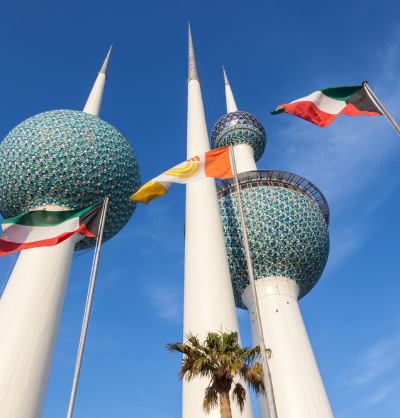The fifteenth issue of our stratEGIC Monthly, features analyses of key issues that defined the Euro-Gulf space in April 2023. This edition looks at how economic diversification is trucking along as the GCC inches closer and closer to the implimentation of their economic reform programmes. It also explores the final dydaic relationship, within the GCC, that required normalisation after the 2021 Al Ula agreements: Bahrain and Qatar. Finally, this issue presents the Saudi-Iran deal as it pertains to the wider Middle East Happy Reading!
Milestones Towards Economic Diversification
By Piercamillo Falasca
April 2023 will be remembered as a milestone in the Gulf Cooperation Council’s (GCC) path to economic diversification. In both Saudi Arabia and the United Arab Emirates the acceleration in the growth of new orders led to a surge in non-oil business activity, as strong domestic demand triggered an increase at the fastest rate since September 2014. The latest Riyad Bank Saudi Arabia Purchasing Managers’ Index report, formerly known as the S&P Global Saudi Arabia PMI, revealed that Saudi Arabia’s PMI rose to 59.6 in April from 58.7 in March. Naif Al-Ghaith, the chief economist at Riyad Bank, said that: “April PMI data highlighted another steep expansion of business activity across the Kingdom’s non-oil private sector economy. We have witnessed rising tourism numbers, higher consumer spending and new business opportunities related to major infrastructure projects.” Long-term business expansion plans have made the rate of job creation stronger, determining a rise in total employment numbers for the 13th month in a row. As Saudi Arabia continues its economic diversification efforts, in line with the plans of Vision 2030, Jihad Azour, director for the Middle East and Central Asia at the International Monetary Fund, said the Kingdom’s economy is edging closer to reducing its dependence on oil. Azour further noted that the growth of the non-oil economy in Saudi Arabia is driven by government-led reforms and the growth of private investment.
The United Arab Emirates are experiencing a similar trend. The seasonally adjusted S&P Global UAE Purchasing Managers’ Index rose to 56.6 in April from 55.9 in March, the highest in six months, signalling further improvement in its non-oil economy. David Owen, senior economist at S&P Global Market remarked that “the UAE PMI rose for the third month running in April to signal an even stronger rate of expansion across the non-oil economy, driven by rapidly increasing new orders and retreating inflationary pressures.”
The Output sub-index rose to 62.7 last month, up from 62.2 in March and the highest pace of growth since October 2022, and although employment activity softened from March, the sub-index remained above 50, signalling continued growth in jobs.
Meanwhile, on 03 April, Bahrain announced the introduction of a new “golden license” offering benefits to companies bringing large-scale investment projects to the Gulf state. The government’s media office noted that “Companies with major investment and strategic projects that will create more than 500 jobs in Bahrain, or those with investment value exceeding $50 million, will be eligible for the license.” The golden license will be offered to local and foreign businesses and benefits include a prioritised allocation of land, infrastructure and services, easier access to government services and support from government development funds, the statement said.
Bahrain and Qatar prioritize Gulf Unity
By Veronica Stigliani
Qatar and Bahrain agreed to restore full diplomatic ties in the wider context of the Al Ula agreement which were completed in 2021 when Saudi Arabia, the UAE and Egypt ended the 3-year embargo of Doha. Bahrain had only restored travel and trade relations at the time. The rapprochement — formalised at the Headquarters of the Gulf Cooperation Council (GCC) General Secretariat in Riyadh, where delegates from the two countries expressed their willingness to “enhance the Gulf unity and integration” — puts an end to the dispute.
The move is in line with the priorities of Bahrain’s foreign policy, aiming to maintain security in the region and consolidate opportunities of cooperation between Gulf countries. But the reconciliation is also part of the ongoing process of normalisation across the region. The recent China-brokered agreement between Saudi Arabia and Iran, as well as the Gulf normalisation with Assad’s Syria are part of a rearrangement of relations determined by wider international developments. The Ukraine war, with its repercussions on the food and energy markets, and the related further US disengagement from the region did indeed sow the seeds for increased dialogue among Arab nations, pushed to find new ways for cooperation in order to face the changing international realities.
Unlike Syria or Yemen, the Saudi-Iran dialogue does not stablise Lebanon
by Piercamillo Falasca
The Saudi-Iran dialogue, which is producing a full restoration of diplomatic ties between the two, has the potential to stabilise the entire Middle East. Some positive effects are already clear. For example, Saudi Arabia has already pushed for Syria’s — a staunch ally of Iran — reintegration into the Arab League more than a decade after its suspension. In Yemen, the deal appeared to have helped broker the release of hundreds of Houthi prisoners in Saudi Arabia, paving a potential path towards peace.
But the deal looks less effective in Lebanon. Unlike in Yemen, the Saudi-Iran deal will not reflect on Lebanon’s political reality in the foreseeable future, except in terms of preventing further escalations among local rivalries. Resolving the dispute between the opposition and Hezbollah’s coalition and its allies requires a longstanding domestic dialogue that does not yet seem plausible. Both sides have mixed feelings about the Saudi-Iranian deal. Politicians and analysts from both camps appear cautiously optimistic that the Beijing agreement could eventually facilitate a resolution to Lebanon’s domestic crisis on terms favourable to them. At the same time, there is consensus that, at least for now, neither Iran nor Saudi Arabia will devote much attention to Lebanon compared with, for example, Yemen or Iraq.





